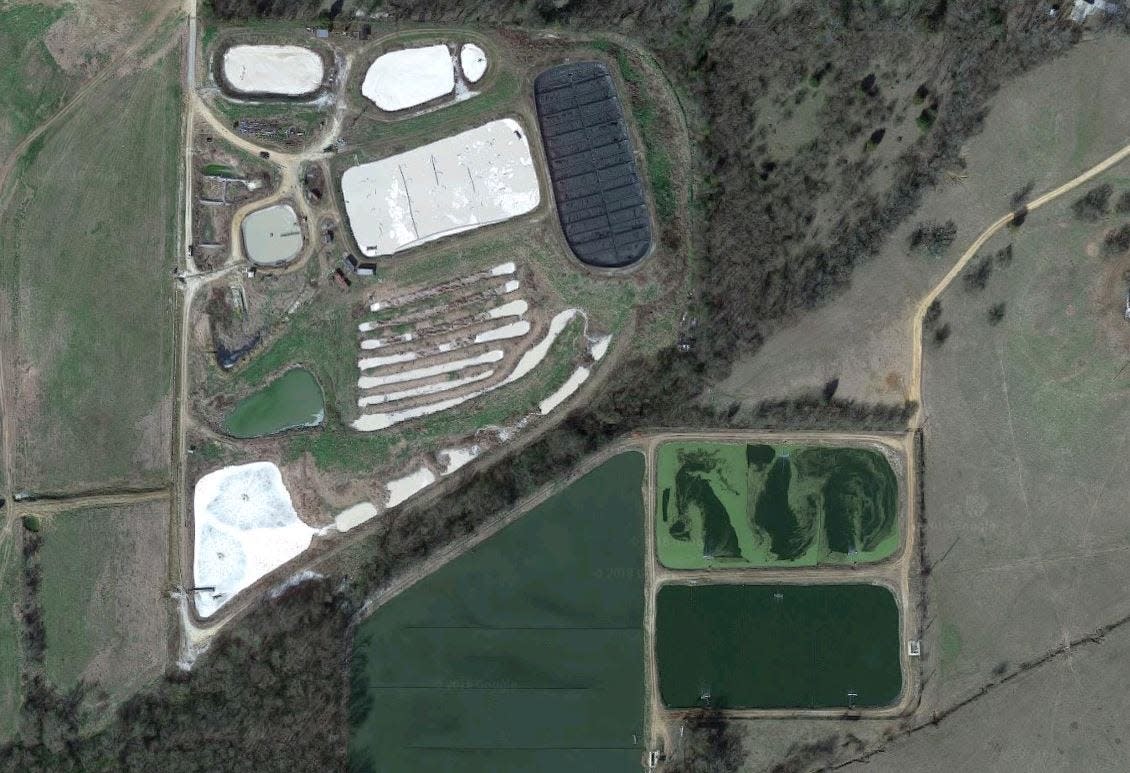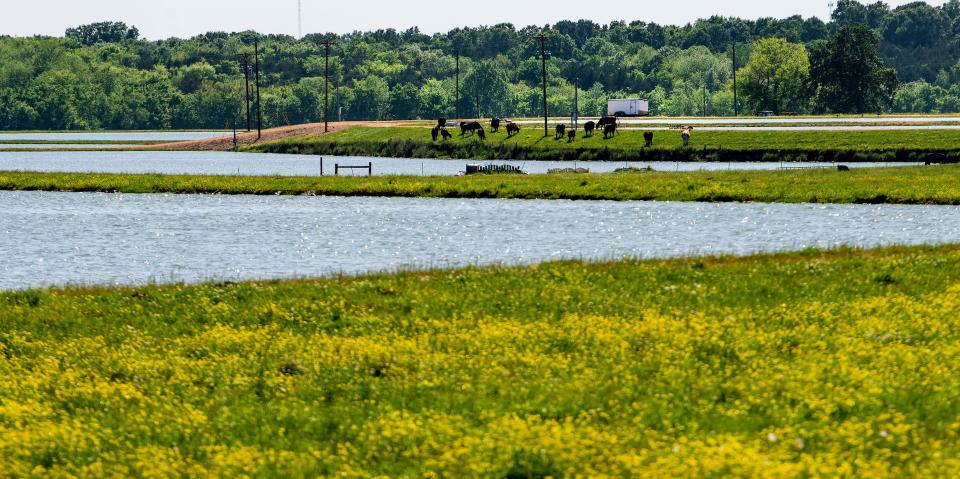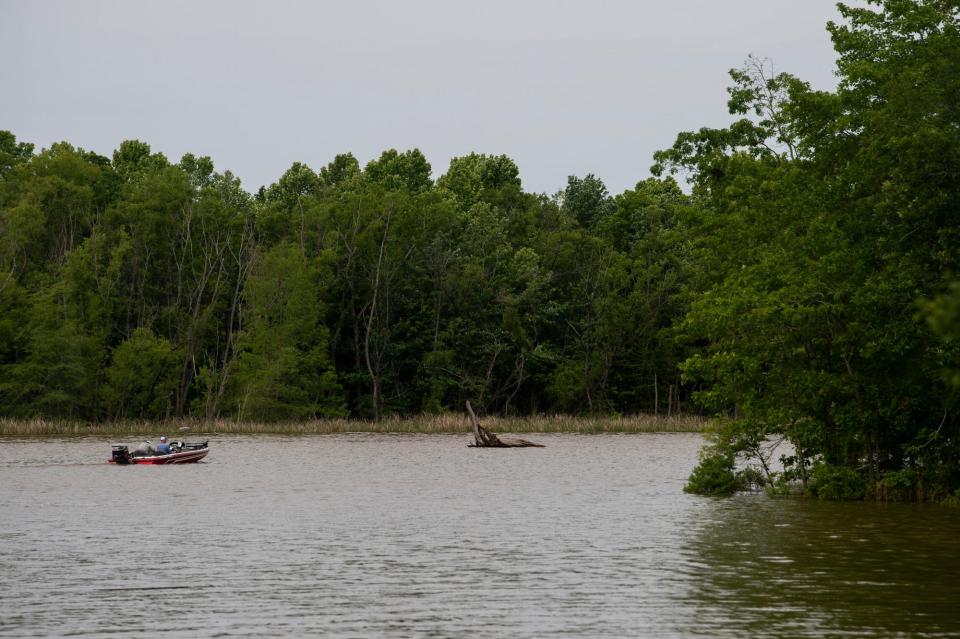Alabama sues Uniontown sewer board for continued water pollution violations

Sewage overflows in Uniontown — onto private property, under homes and into creeks — as it has for over a decade.
Consequently, the city of Uniontown and its waterworks and sewer board have been subject to multiple lawsuits dating back to 2005. On Monday, the state of Alabama named the board as the defendant in another suit.
Alabama Attorney General Steve Marshall and the Alabama Department of Environmental Management filed a complaint in Perry County against the Waterworks and Sewer Board of the City of Uniontown for violating the Alabama Water Pollution Control Act, the Alabama Environmental Management Act and the board’s National Pollutant Discharge Elimination permit.
Being a rural community with limited resources, Uniontown does not have a mechanical treatment plant for its sewage. Instead, the city collects its sewage and pumps it into a lagoon system where the solids are supposed to settle out while the liquid effluent is pumped to a spray field. There, ideally, natural microbes and soils absorb the effluent and degrade the pathogens.
State and town leadership acknowledge this system is not operating as it should. Some residents say it never has.

“Improper maintenance, upkeep, and operation of the Uniontown Lagoon sewage collection, treatment and disposal system have had negative impacts on Uniontown and its residents for over 30 years,” Birmingham attorney Eva Dillard wrote in a letter to the sewer board in August. “The awful impacts on water quality and aquatic life extend far away into two different watersheds.”
More:Living with it: Uniontown residents feel like they’re screaming for help, but no one is coming
Dillard represents Black Warrior Riverkeeper and Black Belt Citizens Fighting for Health, two organizations dedicated to promoting public health and environmental justice. The two groups allege that the board discharged over 245 times its limitation for Fecal Coliform bacteria and over 2,013 times Alabama’s summer maximum for E. coli bacteria, based on water samples collected over the summer.
This sewage overflows into Cottonwood Creek approximately 150 days a year and into Freetown Creek every single day, according to 2018 reports from the U.S. Department of Agriculture. Cottonwood Creek ultimately feeds into the Black Warrior River, and Freetown Creek ultimately runs into the Alabama River, two of Alabama’s longest waterways.

In the August letter, Black Warrior Riverkeeper and Black Belt Citizens Fighting for Health notified Uniontown sewer board chairman Clarence Black and the state of their intent to sue the board in federal court — unless the board resolved its violations or the state began “diligently prosecuting” the board within 60 days.
Fifty-nine days later, on Monday, the state filed its complaint.
ADEM’s lawsuit states that the sewer board “failed to properly operate and maintain the wastewater treatment facilities,” resulting in unpermitted discharges of untreated sewage into two local creeks.
Black Warrior staff riverkeeper Nelson Brooke is frustrated by the state's actions. He has been working to address the sewage woes in Uniontown since 2009, but he said local and state leaders have denied advocacy stakeholders a seat at the table to discuss solutions.
"This is not the first time that ADEM has effectively preempted us, or attempted to," he said. "In many other instances over the years when we have tried to bring federal Clean Water Act lawsuits against municipal entities that are violating their permits and causing harm to waterways and public health, it's because ADEM has not taken effective enforcement action in the intervening five years. So that opportunity is ours to entertain, and it's very common practice for them to step in and try to take our case away from us by filing something in state court and then arguing that their action supersedes ours."
The Clean Water Act is a federal statute that regulates the discharge of pollutants into protected bodies of water. It contains a provision allowing citizen suits, so individuals or groups like Black Warrior Riverkeeper can bring a lawsuit when "the responsible state environmental regulatory agency, in this case ADEM, is not taking enforcement action against a serial polluter," according to Brooke. To do so requires the 60-day notice of intent.
Now, Brooke says the only action forward for the group is intervention in the state's case.
"ADEM has continually failed to get this system in order. Their multiple enforcement actions haven't done the job. So it's like, 'Hey, it's our turn. Let us try to get this problem solved,'" Brooke said. "We have not been meaningfully involved at the table throughout all these years I've been working on Uniontown."
This state lawsuit comes four years after the USDA awarded Uniontown a grant of more than $30 million to overhaul its wastewater management system and resolve the long-standing issues. That money is being used to construct a system to pipe Uniontown’s waste 20 miles west to Demopolis for treatment, but Brooke said Uniontown residents have disputed whether that is the right solution.
In the lawsuit, ADEM recognizes that this “remedial work” has begun and states that the purpose of the lawsuit is to seek a declaratory judgment “without relitigating previously addressed issues or allowing current progress to be obstructed.”
As the state suit moves forward, the plan for Black Warrior Riverkeeper and Black Belt Citizens Fighting for Health to sue the water board ends.
Hadley Hitson covers the rural South for the Montgomery Advertiser and Report for America. She can be reached at hhitson@gannett.com. To support her work, subscribe to the Advertiser or donate to Report for America.
This article originally appeared on Montgomery Advertiser: Uniontown faces lawsuit from the state over sewage, water pollution

